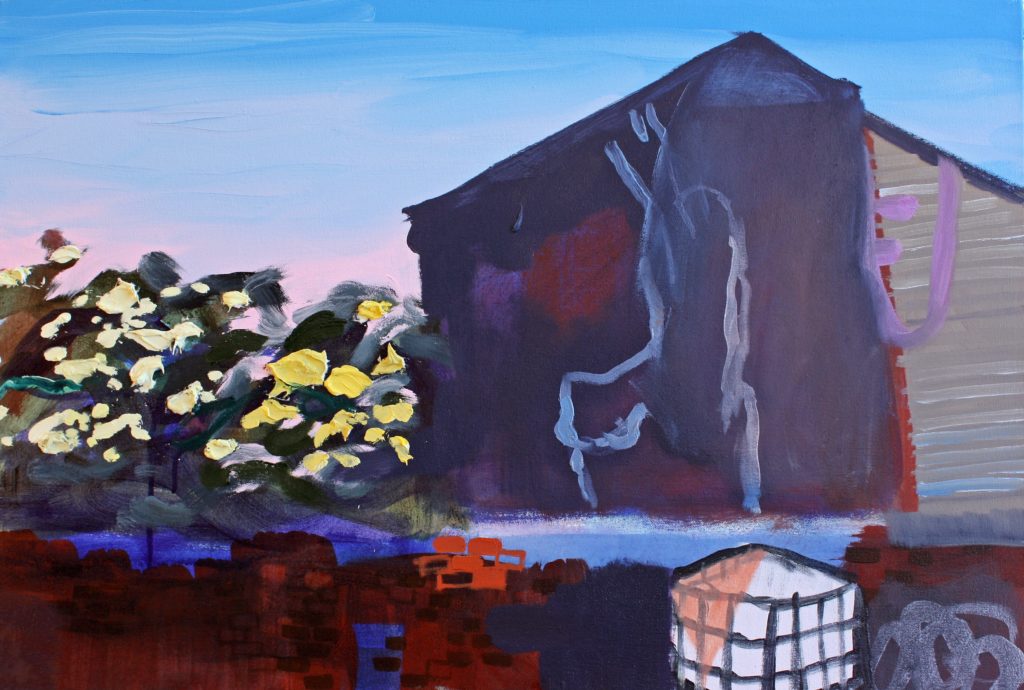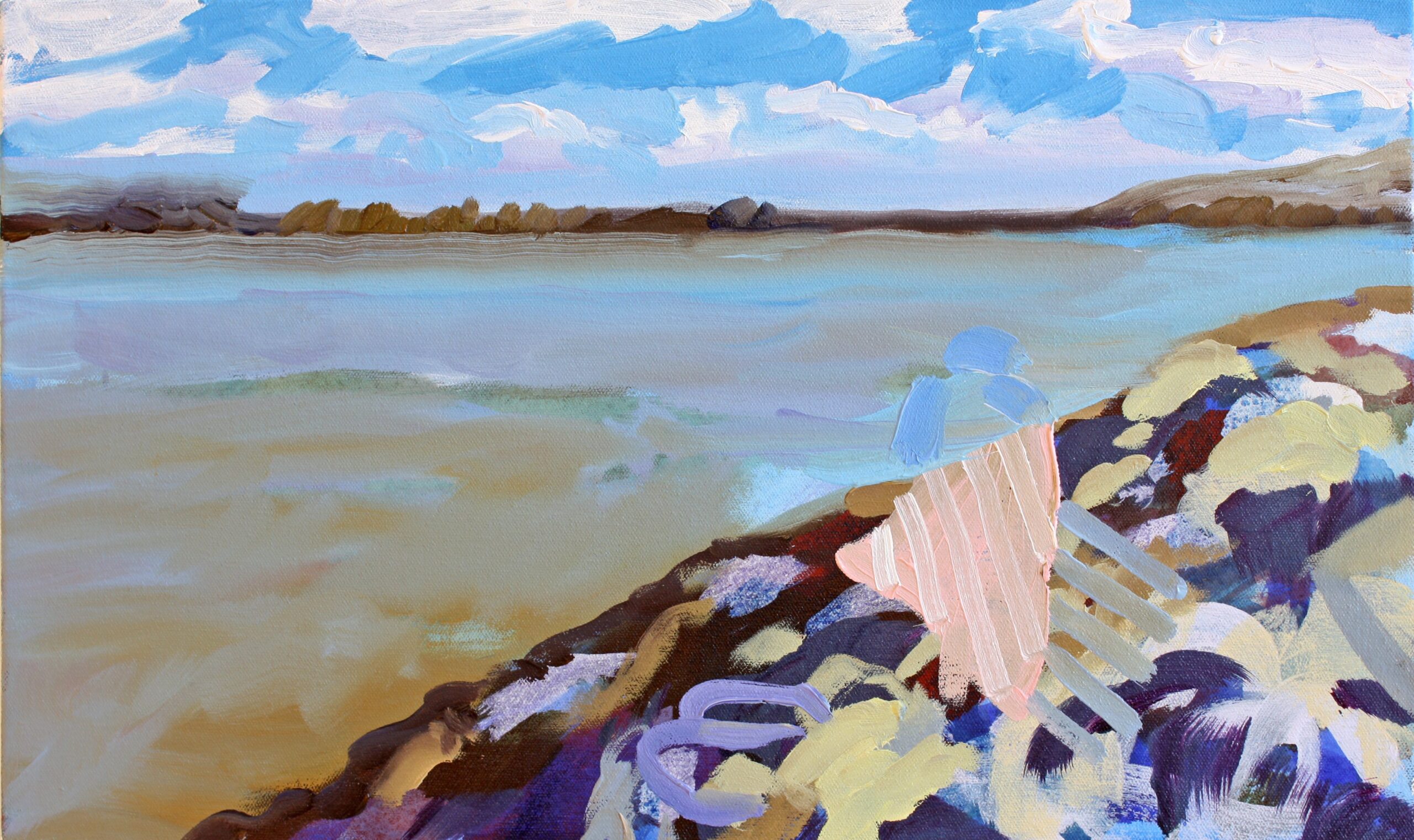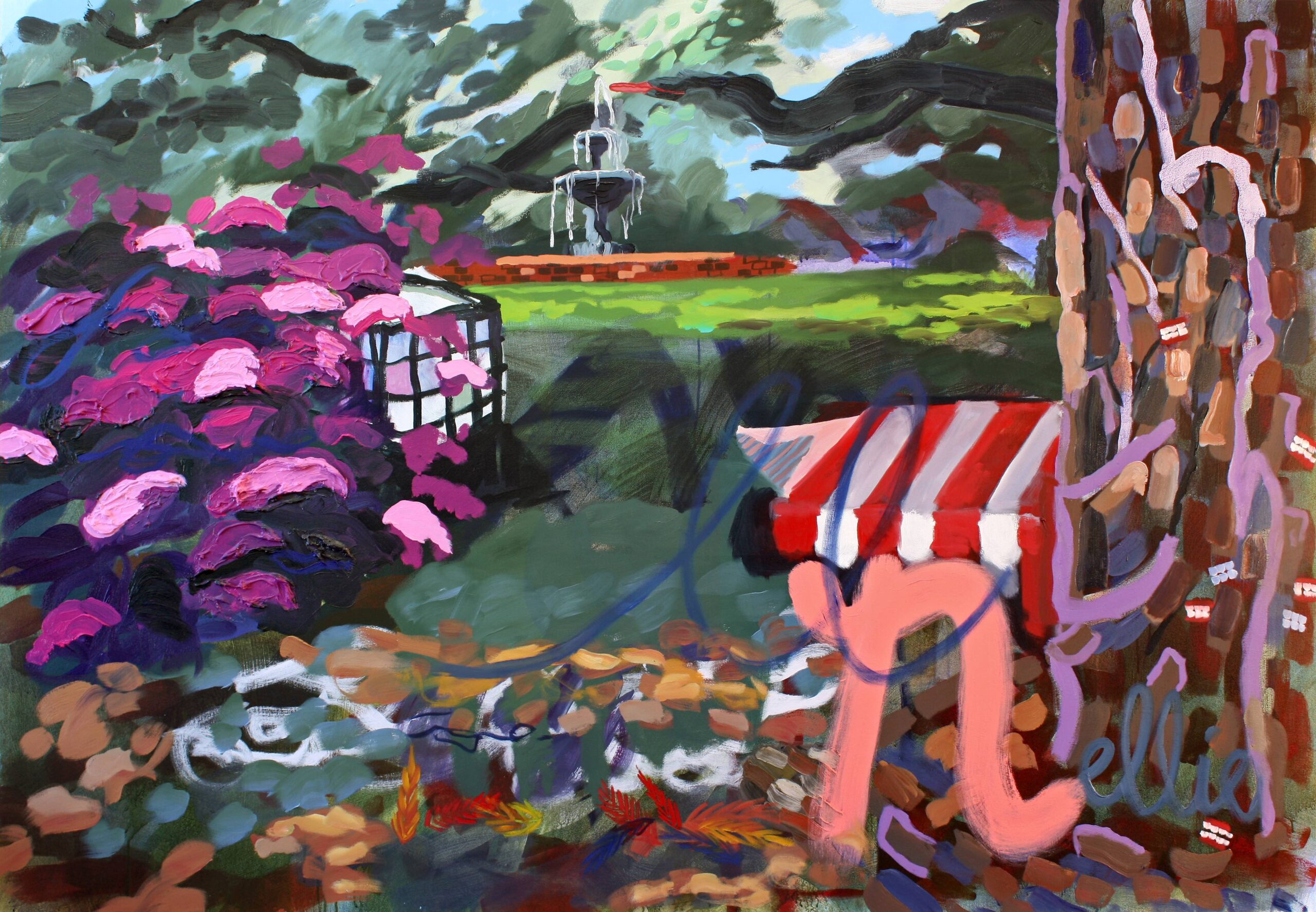
Susanna Bluhm has lived in Seattle for the past 12 years, but after the 2016 presidential election, she found herself afflicted with a politically-driven case of wanderlust. Here, she discusses the motivation behind her series, “Red Country,” and why a sense of place is more important than a literal depiction of the landscape.
“I tend to do projects and base a series of paintings on one idea. I ground myself as an artist, a person, and a painter with a sense of place. For example, I’ve done series about a trip up to New York in the snow and the traffic island in my neighborhood. I’m not a landscape painter—my primary goal is not necessarily to portray the landscape but to use it as a jumping-off point. I explore the other ways that a painting can represent a part of the country without portraying a recognizable landmark. It’s always specific to my experience of the place. Often, landscape paintings present an objective depiction of reality, and I’m not doing that—it’s always personal and subjective. My personal narrative is woven through the paintings.
‘Red Country’ was inspired by Trump having been elected by the electoral votes of red states. Our country became divided, not only politically but regionally. The red chunks of land on the election map were disconcerting, especially considering that they decided the election instead of the majority vote. I was really angry after Trump was elected, and I didn’t want to go on hating half of our country. So while Trump is president, I’ve decided to travel to as many red states as I can. In each state, I ask the local residents where they think I should go next in their state. Then I go, take a lot of pictures, come back to my studio, and paint them. I’ve traveled to Mississippi, Louisiana, Arizona, North Carolina, Georgia, Florida, and Montana. I’m choosing the states based on a variety of factors. A lot of them have residency programs that I’m applying for, and in some states, I have friends who have offered to show me particular places. Then there are some states where I can’t find any residencies and don’t know anybody. Mississippi, for example. My wife and I went there, and rented Airbnb houses. It was great for us to be able to explore without necessarily knowing where to go next.
I used to doubt that people have regional characteristics, but it’s turned out to be true. In Mississippi and Louisiana, people were warm and friendly to strangers, but there was no chance that conversations would go below the surface. I went there bracing myself for political confrontation but people just don’t go there. We had great experiences interacting with the people in both states. For two hours, we were on a boat with a man in Louisiana in the middle of a lake, and he didn’t ask us about our politics or our relationship. We just talked about the lake and the cultural history of the area. But that’s okay. I don’t try to steer our conversations in any direction. My goal is not to change anyone’s mind—because I don’t really think that’s possible—but to make my own contact with these parts of our country and to have my own experience there. Whatever happens, it’s equally all good. It’s all part of the project.
There’s a lot of beauty in the Mississippi landscape. It’s a very unique place. On the freeways, instead of the roads being grey, it’s like a sienna reddish-brown color. There are a lot of small rolling hills, and there are Native American burial mounds. It was a different kind of nature than I had experienced before. Like, the Mississippi River is loaded with a lot of cultural and historical meaning. We went for a walk down by the river one day, and it was a beautiful place.”



